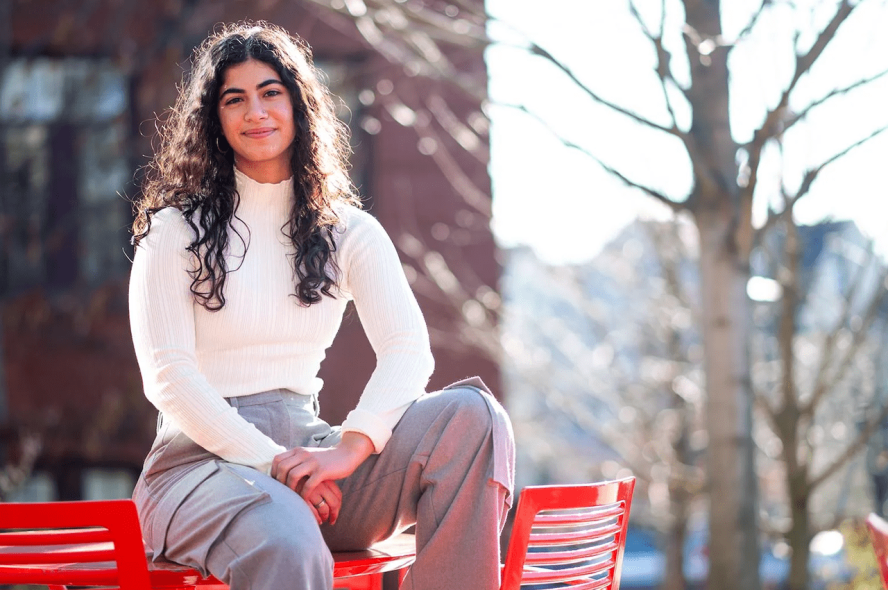Where engineering pathways begin: Ayah Basmeh, E24

Ayah Basmeh, E24, has found her niche in electrical engineering and looks forward to fine-tuning her interests next year with an M.S. in Innovation and Management (MSIM) from Tufts School of Engineering’s Gordon Institute. Her undergraduate activities include serving as a student facilitator of the Pedagogical Partnership Program and, prior to her sophomore year, as pre-orientation program coordinator for BEAST (Building Engagement and Access for Students at Tufts); she has since returned every year as a peer leader/peer mentor for BEAST and for the FIRST Resource Center. Other activities include the Arab Students Association and performing with Ballet Folklórico. As a musician whose primary instruments are clarinet and bass guitar, she also created EthnoMusic House, where students gather to perform and celebrate world music.
“I didn’t follow the most conventional path to get to electrical engineering. I started out in biomedical engineering but came to realize I wasn’t happy working in a lab.
“I care a lot about the human and social component of engineering. I have no regrets at all about switching my major. It helped me realize I don't really have much fear. I'm always trying to give my best, I am resilient, and I’m here to learn how to learn.
“I’m also really enjoying the opportunities that electrical and computer engineering offer. For our senior design project [taught by Ron Lasser, professor of the practice, Emily Carlson, assistant teaching professor, and Brian Aull, professor of the practice], we’re making an electronic orchestra analyzer. It’s a device that takes input signals from sound waves made by various instruments. We can classify what they are and ideally produce a transcription, which is a musical score of all the parts that they're playing. It’s been perfect for me: It ties in with my interests in music and electrical engineering.
“Last year I decided to get involved with the Tufts Robotics Team and jumped into the introductory Combat Robotics project. Each team makes a small combat robot, or battlebot, to compete in a tournament that’s held on the patio of the Science and Engineering Complex in November. I had a lot to learn: I had never used laser cutting machines, never done computer animated design. But there was a great team spirit because everyone was so collaborative.
“When it came to the night of the tournament, we were so excited to be with one another and even more excited to see how our robot, Leona, destroyed the competition. We were honestly surprised to win first place!
“To me, being excited about engineering work means finding the field that aligns with my morals and my values. As I look ahead, I want to target my engineering training toward addressing the needs of people. We should be directing innovations to global problems, including reducing and eliminating poverty and hunger. We should be designing systems that can be sent out there quickly and affordably to help people get the help they need in times of crisis.
“It’s not always a straight path to find out what you can do in engineering. So my advice to students is: Take your time to figure things out. Once you get to where you want to be, you will be excited to keep going, and your perspective is going to be valued. Maybe it’s going to be different from everyone else’s because you've struggled to get there. But everyone has their own unique process. Just push past your fears and navigate your own way to find out what works for you.”
Read more student profiles in Where Engineering Pathways Begin by Laura Ferguson/Tufts Now.